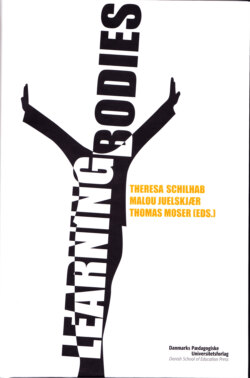Читать книгу Learning Bodies - Группа авторов - Страница 32
На сайте Литреса книга снята с продажи.
The first-person perspective as a motivational aspect of situated action
ОглавлениеIn this section, I would like to extend ideas of a dynamic concept of action by presenting an action-logical approach which specifies – in my own wording – first-person accounts as being an important function in motivational processes. The following should become clear: The first-person perspective does not only exist as subjective experience – for example, described as felt sense (Gendlin 1997) – but also as a kind of reflective, goal-oriented and intentional process. Both perspectives define action as situated. Nitsch (2005, p. 60), a psychologist working in the field of sports, defines situation as “the perceived configuration of person, environment and task.” I will present his theoretical standpoint on the subjective definition of one’s situation in the subsequent section (see Figure 1).
Figure 1
In the motivational process, Nitsch (2005) defines each of these three situational components as being perceived subjectively on the basis of two appraisal dimensions – dimensions which I view as being captured through the term “first-person perspective”. The first appraisal dimension refers to the “I want” and can be defined as self-significance: Personal values and needs, the attractiveness of the task and the stimulating impact of the environment are included in the evaluation and accounts of the subject. The second appraisal dimension refers to the “I can” and is defined as self-efficacy, a term well-known from Bandura (1997), but here to be understood as a relational concept, and not merely a personality factor. The “I can” is also an important embodied dimension which is often stressed by phenomenological thinkers (e.g. Merleau-Ponty 1962). Nitsch (2005, p. 61) defines self-efficacy as “the perceived effectiveness in dealing with a certain task under certain environmental conditions. This includes one’s abilities in relation to the demands of the task and the opportunities which the environment provides to apply one’s abilities optimally.” Furthermore, the individual evaluates the situation on the basis of specific reference standards: The individual reference standard is an evaluation on the basis of one’s own former goals and achievements. Task-oriented standards refer to the demands of the task. And social-oriented standards can refer to competition or cooperation with others. Finally, Nitsch refers to action as leading to specific outcomes by including the work of Heckhausen (1991), who makes a sharp distinction between the primary result of an action, for example, winning a match, and the secondary consequences, for example, feeling happy about the victory.
This subjective definition of one’s situation might build on more or less reflective processes of the individual, where elements of this evaluation are not necessarily based on embodied first-person accounts. The presented theoretical model on motivational aspects of situated action can be assessed as an important fundament in any learning process, including body-anchored learning.
